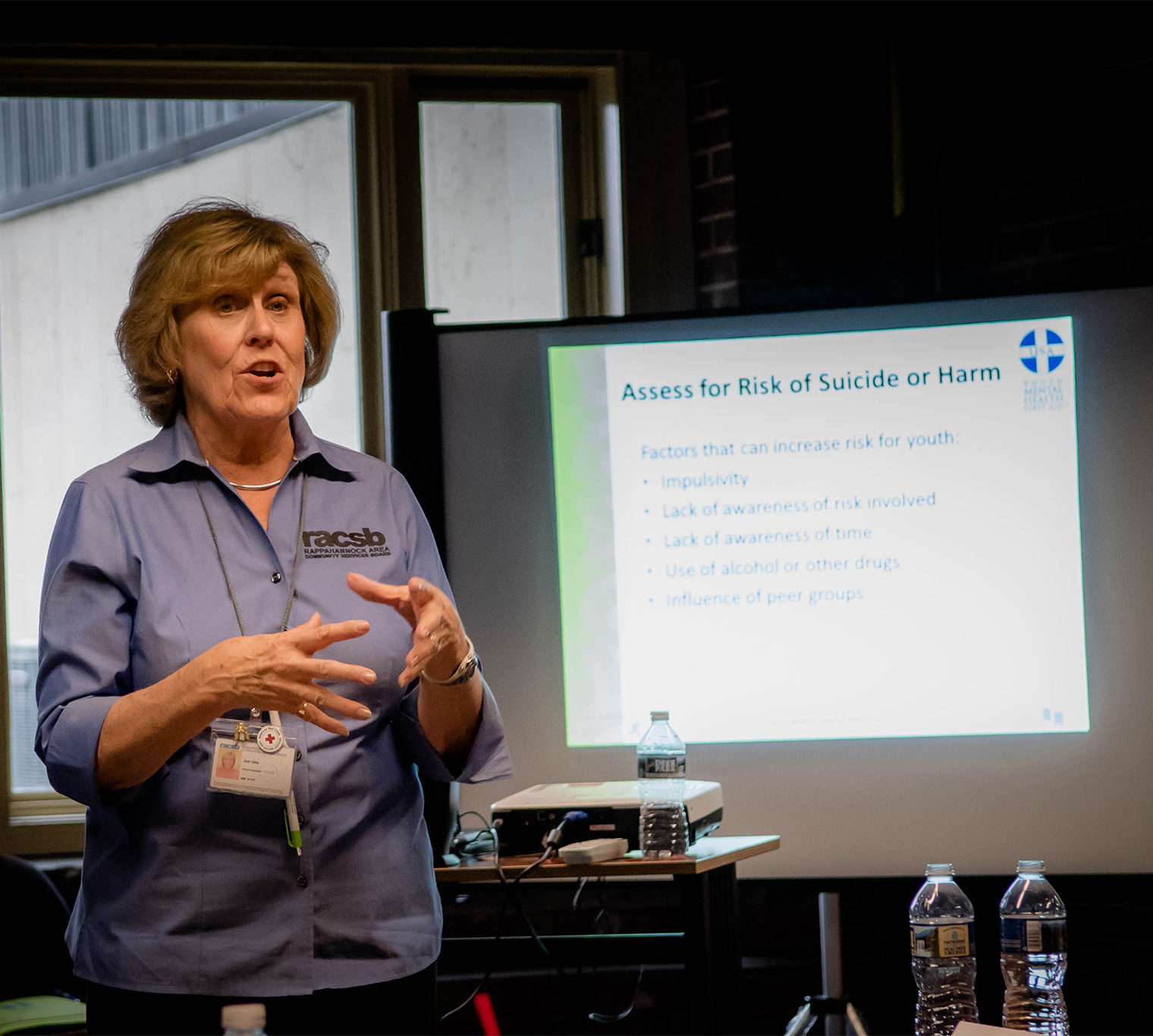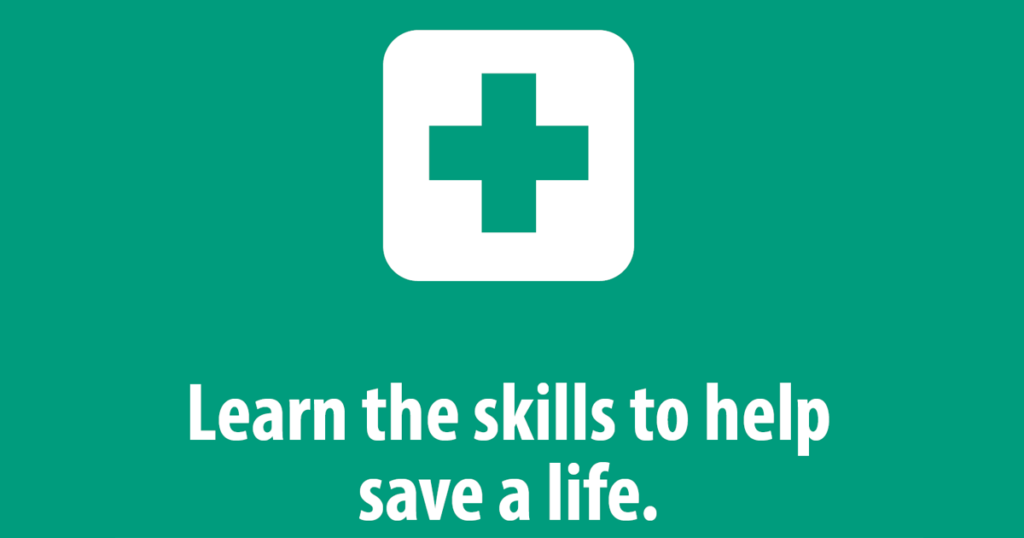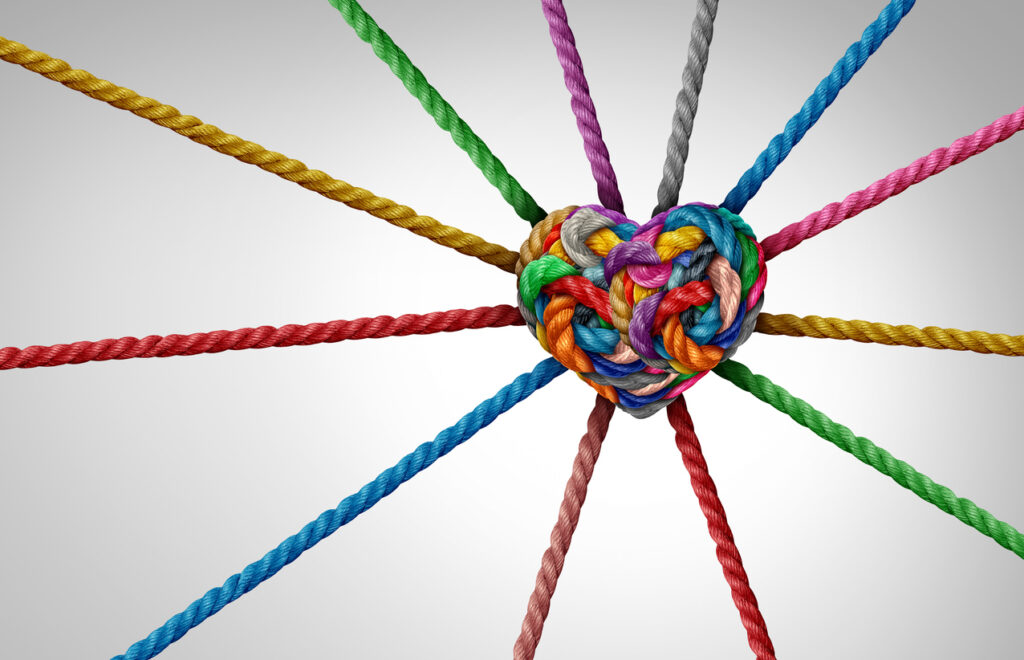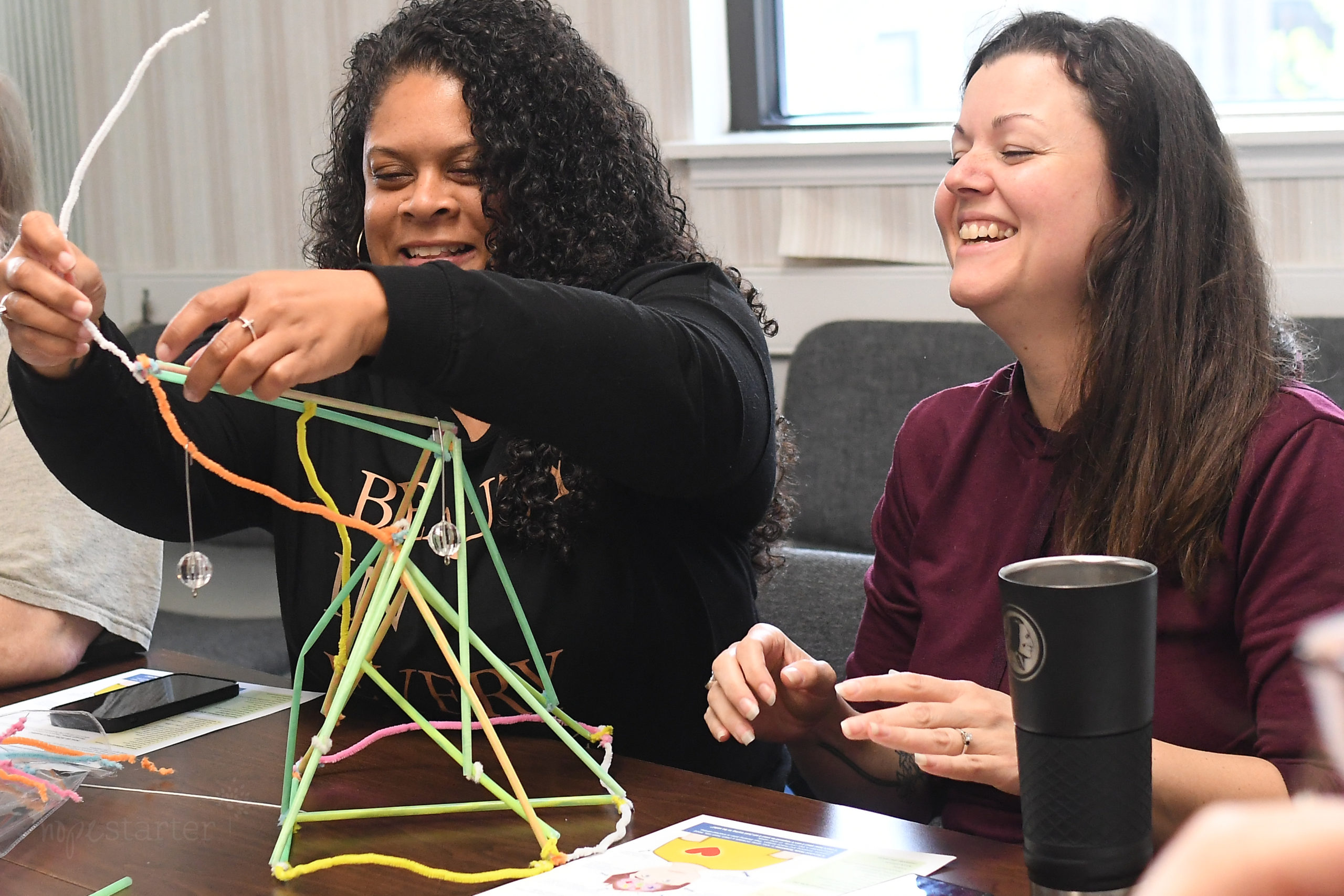Prevention Services
Prevention Services at the Rappahannock Area Community Services Board provide a wide array of evidence-based curriculums and best practice initiatives to support healthy lifestyles for youth free of substance and to foster a community of wellness. We provide general youth substance use prevention (to include alcohol, tobacco/vaping, cannabis, OTC/prescriptions, and other drugs) and as well as a number of training curriculums addressing suicide prevention, reversal of an opioid overdose, and building trauma informed communities.
Trainings are currently provided at no cost through the support of grant funding. Trainings are regularly scheduled throughout the year. Please review each option and register for the training dates that fit your schedule.
To request a specific training for your organization or to bring our team into your classroom (topics include alcohol, tobacco/vaping, cannabis, and gaming/gambling) , please reach out via [email protected].
Upcoming Trainings
Recurring Events
ACE Interface – Understanding Adverse Childhood Experiences (ACEs) and Building Self-Healing Communities
Our life experiences can impact our health. ACE Interface provides a common language for multiple disciplines, service sectors, and diverse communities to better understand the findings of the Adverse Childhood Experiences (ACEs) Study. You will learn about how early adversity as a child can affect one throughout their life and steps we can take towards addressing the trauma and creating safe environments and relationships. Understanding ACE’s will help support the work and relationships you have with others.
This is a paradigm shift in our understanding of the origins of physical, social, mental and societal health and well-being. Be part of our community conversation and work to reduce ACEs while also fostering individual and community resilience.
RACSB offers this training both in-person and virtually (3-hours). We have the ability to provide this information in a 20-minute overview to a full-day course.
For in-person learning options:
https://www.signupgenius.com/go/RACSB-ACES-Training2026

ASIST – Applied Suicide Intervention Skills Training
The LivingWorks Applied Suicide Intervention Skills Training, commonly referred to as ASIST, is a 2-day interactive workshop in suicide first aid. Participants learn to recognize when someone may have thoughts of suicide and to work with the individual to create a plan that will support their immediate safety.
ASIST is a resource for the whole community. It helps people apply suicide first aid in many settings – with family, friends, co-workers, and teammates, as well as formal caregiving roles. ASIST can be learned and used by anyone ages 16 and older.
ASIST’s key features include:
- Small-group learning
- Emphasis on individual needs
- Perspective matters
- Direct approach
- Training focus:
- Reliable, proven model
- Audiovisual aids
Please only register if you can fully commit to both days of the training.
https://www.signupgenius.com/go/RACSB-ASIST-Training2026
Mental Health First Aid
RACSB as offered Mental Health First Aid training since 2014. This interactive certification course teaches adults how to identify, understand and respond to signs of mental illness and substance use disorders. The training introduces common mental health challenges and gives participants the skills to reach out and provide initial support to someone who may be developing a mental health or substance use problem and help connect them to the appropriate care.
Youth Mental Health First Aid is for adults who regularly interact with adolescents. The course introduces common mental health challenges for youth and teaches a 5-step action plan for how to help young people in both crisis and non-crisis situations.
Whether you are a first responder, teacher, faith leader, parent, coworker or caring community member, these certification courses have information everyone can use.
Mental Health First Aid uses role-playing and simulations to demonstrate how to assess a mental health crisis; select interventions and provide initial help; and connect people to professional, peer, social, and self-help care. Participants do not learn to diagnose, nor how to provide any therapy or counseling – rather, participants gain concrete tools and answers to key questions like “What can I do?” and “Where can someone find help?” and a core five-step action plan to support someone developing signs and symptoms of mental illness or in an emotional crisis.
Overall, the course is eight (8) hours. Please only register for dates when you can fully attend.
Upon registration, you will receive an email with instructions to create a personal account in the Mental Health First Aid CONNECT learning management system. This must be completed prior to the live instructor-led training. After the course, participants take a short survey and then receive an official Mental Health First Aid certificate which is valid for three (3) years.
For Adult MHFA training dates and to register:
https://www.signupgenius.com/go/RACSB-MHFA2026
For Youth MHFA training dates and to register:
https://www.signupgenius.com/go/RACSB-YMHFA2026

You are more likely to encounter someone experiencing a mental health crisis than someone having a heart attack. Mental Health First Aid teaches you the common warning signs and risk factors associated with mental health concerns, along with a five-step action plan to help someone in crisis.
Suicide rates for Hispanic people in the United States have climbed dramatically in the past decade. And Hispanic adults are less likely to know about suicide prevention resources and mental health treatment options.
To address this disparity, we’ve partnered with Healthy Families Rappahannock Area to offer Mental Health First Aid training in Spanish.
“Mental health and suicide can be intensely personal topics. We know how valuable it is to be able to discuss these issues in the language you are most comfortable with, which is why we are excited about this new offering for our community.”
Naloxone Training/Opioid Overdose Reversal
Learn what to do and not do in an overdose situation, how to administer naloxone, and what to do afterwards. This training is appropriate for any community member. An abbreviated rapid version is also available for community events.
During this 60-minute virtual class held via Zoom, participants will learn:
- How to recognize the signs and symptoms of an opioid overdose.
- How to administer naloxone nasal spray to potentially reverse the effects of an opioid overdose.
- Other knowledge needed to fully respond to an opioid overdose emergency (what to do and not do).
In order to access the online class, you will need a smart phone, tablet, desktop or laptop computer equipped with a camera, microphone, and speakers.
Registration will be confirmed via an email, which will contain course log-in instructions for Zoom, how to obtain your Harm Reduction Kit (2 CPR mouth barriers, vinyl gloves, stickers, instruction card) and Naloxone.
safeTALK
The LivingWorks safeTALK course is a 3-hour face-to-face workshop that encourages participants to learn how to prevent suicide by recognizing signs, engaging someone, and connecting them to community resources for additional support. It is appropriate for anyone age 16 and older. No prior training or experience is required.
SafeTALK stresses safety while challenging taboos that often prevent open converstions about suicide. The ‘safe’ of safeTALK stands for ‘suicide alertness for everyone.’ The ‘TALK’ letters stand for the practice actions that one does to help those with thoughts of suicide: Tell, Ask, Listen, and KeepSafe.
https://www.signupgenius.com/go/RACSB-SafeTALK2026
Community Resilience Initiative
Course 1: Trauma Informed and Course 2: Trauma Supportive
The Community Resilience Initiative (CRI) has developed courses to teach parents, schools, medical professionals, mental health practitioners, and any community member interested in learning more about toxic stress and how individuals and communities build resilience across the lifespan.
CRI Course 1: Trauma-Informed is a 6-hour course that covers NEAR Science (Neuroscience, Epigenetics, ACE Study, Resilience), Brain States, and ROLES strategies for individuals seeking a trauma-informed certification.
CRI Course 2: Trauma-Supportive is a 6-hour course that covers the science of resiliency and shares promising strategies to build culturally and contextually resilient individuals and communities.
You must complete CRI Course 1 in order to take Course 2



